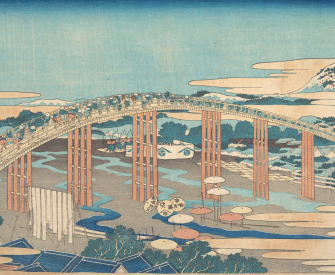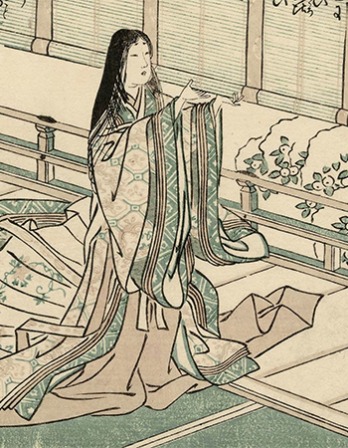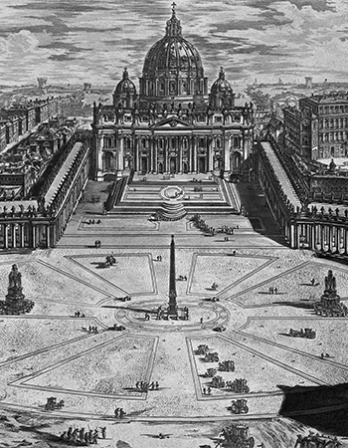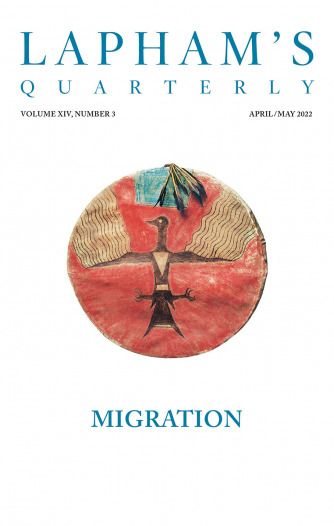While on a walking tour along the Northern Road, I stopped at a place called Izumo Point in Echigo. And there was Sado Isle, eighteen li off over the blue waves, lying sideways, thirty-five li from east to west. I felt I could reach out and touch it, so clear was my view of the place, even down to the crevasses and steep cliffs of the peaks and the deepest corners of its valleys.
I was thinking how unfortunate it is that now, instead of as a place to admire, a real treasure from which much gold had come long ago, the island is known only as a frightening land to which many criminals and enemies of the court have been sent into exile. Then, lost in my revery, I opened the shutters, hoping for some relief from the melancholy of travel on the road. The sun had already sunk into the sea, and the moon was a dim blur, but the Silver Stream was there, suspended in the heavens, its stars twinkling in the cold as I listened to the sound of waves carried from the offing, my soul as if torn from its body, my bowels wrenched, my heart suddenly so full of sadness that I could not think of sleep, but stood there, weeping so hard that I could have wrung the tears from my ink-black sleeves.
Across rough seas,
it arches toward Sado Isle—
The River of Heaven.
Translated by Steven D. Carter. © 1991 Board of Trustees of the Leland Stanford Jr. University. Used with permission of the Stanford University Press.
“Silver Stream.” Born into the samurai class in 1644, Basho at the age of nine entered the service of a local lord and soon began writing poems. He went to Edo at the age of twenty-nine to pursue his interest in poetry and became a lay monk in 1679, the same year that he began composing in the form of haiku he would eventually popularize. To adorn his home, a student gave him a plantain tree, or basho, which became the poet’s favorite nickname. At his death in 1694, Basho left fifty ardent disciples devoted to his teachings.
Back to Issue





